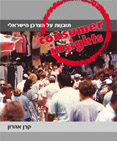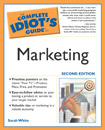 |
|
Written by ZOOZ
consulting and training | (972)-9-9585085 | info@zooz.co.il
| www.zooz.co.il
|
| Issue 14 |
Hello!
We are glad to send you issue 14 of LaZOOZ.
The newsletter is sent as a free service to thousands of senior executives in the Israeli market. It is published monthly, and does not include advertisements.
We tried to keep it short, assuming that your time is precious
and the work is plentiful.
Those who wish to learn more, will find links to articles and relevant information sources.
We hope that you will find the newsletter useful. We will be glad to receive any comments and suggestions.
Pleasant reading!
Ari Manor, CEO, ZOOZ
|
|
Details
An interview with a senior executive
|
Yoram Cohen, Manager of Marketing Department, Sonol
- Number of employees in firm: 220 in the company's HQ, and hunderds more at the gas stations
- Number of employees under my direct responsibility: 30.
- We provide: Gasoline and retail services in gas stations (including computerized fueling systems and a chain of convinience stores).
- I'm on the job for: 18 months. I have a Bachelors and Masters degrees in Business Adminstration and Economics from the Hebrew University of Jerusalem. I worked at The Bank of Israel in foreign currency trade, and was the Head of ecomony division in the Israel Lands Administration (in charge of tourism, industry and fuel stations). Later I worked at Paz as manager of the business division, and 18 months ago I joined Sonol.
- I like on the job: The wide variety of activities. My responsibily is for the fuel station as a retail site - including the marketing of fuels, convinience stores, renting of properties, and business development (for instance: advertising posts, Blockbuster rental machines...). A recent addition is Gas fueling.
- Most difficult on the job: Dealing with illegal fueling stations - the low quality and low prices. The way to confront it is through state legislation. The evacuation of an illegal fuel station is not easily accomplished, as we are dealing with a problematic sector, that does not always follow the law.
- Goals I set for myself: My position makes me in harge of some of the most important aspects of the organization, and I feel the great responsibility involved. My goals are to improve the business results, and to increase Sonol's market share.
- Our vision: Our vision is "Sonol - More than Energy". We want to provide added value to each encounter with clients: extra services, and a retail zone that gives drivers what they need (convinience stores and excellent service). We use hidden client surveys, customer satisfaction surveys and on site training.
- Original product in our market: Gold Diesel - a fuel with an additive that preserves the engine and boost its performance, for the regular diesel price. This branded product was first developed by Sonol, and is especially suitable for trucks and taxis. It is a great success with professional drivers.
- Sources of innovation: We learn and follow the new trends in the world fuel market and convinience stores (the later makes up 70% of the profits for fuel stations abroad - compared to 30% profit made from fuels). In addition - new ideas are developed in internal compant forums, through a constant interdisciplinary brainstorming process among employees.
- Book recommendation: "The Goal", by Eliyahu M. Goldratt, and Jeff Cox.
- To purchase the book: Amazon | Barnes & Noble
- Our review of "The Goal": see marketing book recommendations
- Send comments to: yoramc@sonol.co.il
- Would you like to be interviewed?: contact us
|
|
|
Education
A must-read book for managers
|
Consumer Insights / Keren Aharon / Hod Ami Press (Hebrew)
Usually our book recommendations are for the local and international markets alike. This time we chose to focus on a book which is for those who opperate in the local Israeli market. The book "Consumer Insights - on the Israeli consumer" paints a vivid and clear picture of the israeli customers. The book will surprise even those who supposedly know the local culture, and helps the reader understand better the clients in Israel, their basic views and the most effective ways to address them.
The book was written by a market research institute, and summarises marketing lessons collected through thousands of observatios on Israeli consumers in hundreds of focus groups. The book's main strength is the sharp and accurate (almost frightening) analysis of the psychological motives of various segments of Israeli society: parents, children, soldiers, etc. Each chapter highlights a different segment, and describes the basic conflicts of the people of the segment, their major needs (both overt and covert), and the right ways to address them.
The chapter on Israeli women is one of the book's climaxes, and it focuses on the conflicting demands of Israeli women for unique products catering for female needs, and their resenement towards treating them ("only") as women, and towards arrogant generalizations of femininity. In addition, the chapter lists the needs Israeli women see as legitimate, that may be offered as explicit benefits (for example - the need for recognition, indulgence or nurturing the family), and other need that women see as illegitimate (for instance - the need to control, the need of persnoal time, and the need to be impulsive). According to the author, illegitimate need may also be offered as benefits, but only in combination with more legitimate ones.
Although the book is enriched with professional expressions ("conceptualization", "labeling", etc), and complex arguments, we highly recommend that you should make the effort to read it. It is an excellent introduction for anyone about to market to a segment they are not familiar with (for instance - Israeli teenagers), but may eqaully serve those who wish to have a deeper understanding of the needs of the consumers they have been selling to for years, as well as "what makes them tick". In fact, anyone interested in the people around them will find the book fascinating, and will surely find themselves nodding with agreement as they read, say "hmmm...now I finaly understand why they do this!".
|
|
|
Invention
An innovation which
surprised the world market and competitors
|
Complete Idiot's Guides
You should
never insult your clients, right? Not necessarily! Sometimes. you simply have to dare and break the rules. In the famous Sienfeld sitcom chapter, the character of the Soup Nazi is a chef of extremely tasty soups, that practically abuses the customers, refusing to serve them unless they follow al of his whims - stand in a straight line, say quickly and cleraly the name of the soup they choose when their turn comes, and prepare hte exact change to pay - in order to save the chef the time of giving them change. In fact, the chef treats the clients as if they are a cash production line, and throws them away from the restaurant if they fail to follow the strict rules ("No soup for you!"). The character is based on a true chef, whose customers agree to accept all conditions and restrictions, as long as they got a taste of the marvelous soups. The Sienfeld scene only increased the chef's New York restaurant's popularity, and the lines there are longer than ever. People virtually want to experience the humiliation by themselves.
A good soup might be worth all that, but a book? Calling the reader "An idiot"? And not just an idiot but a "Complete idiot"? Moreover - it is a book on how to use the computer, and the target audience is really having a hard time with computers!...Sounds like really bad marketing writing, nothing like a respected book publisher such as Penguin would allow themselves to do, right? Wrong...
In 1993 Penguin published the first books in "The Complete Idiot's Guide" series. It began with a small number of computer guides. intended for people who were afraid of software and computer related technologies. The wierd and unusual name "The Complete Idiot's Guides", expressed what few of the readers dared to declare out loud - "We feel completely stupid when it comes to computers, even if normally we are stupid people...". The name also suggested a direct. humoristic and friendly approach, one that appealed to readers (and was very different from the "series" and scary guides available at the time).
When readers baught the books, they found that the friendly, direct and light approach is characteristic of the content as well. The guides are easy to understand, teaching everything from the basics (not assuming any knowledge on the part of the reader, be it the most trivial knowledge), are written in straightforward style (a direct and personal language), and are flavored with funny comics and examples. The series was an immediate success, and in 1994 it was upscaled from computers to other areas such as home finance, wedding plans, car maintainance and self-help. Today, it is the best selling and most diverse guide series in the world, including hundreds of books, in dozens of different categories, and constantly growing.
So if you find yoursleves cursing your clients every now and again, perhaps it time to do so in the open, and make money of it? Right? Maybe...
|
|
|


